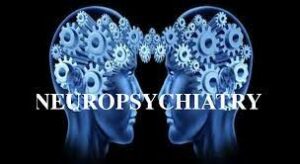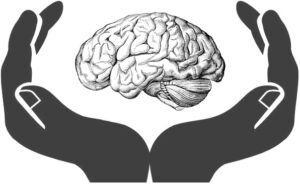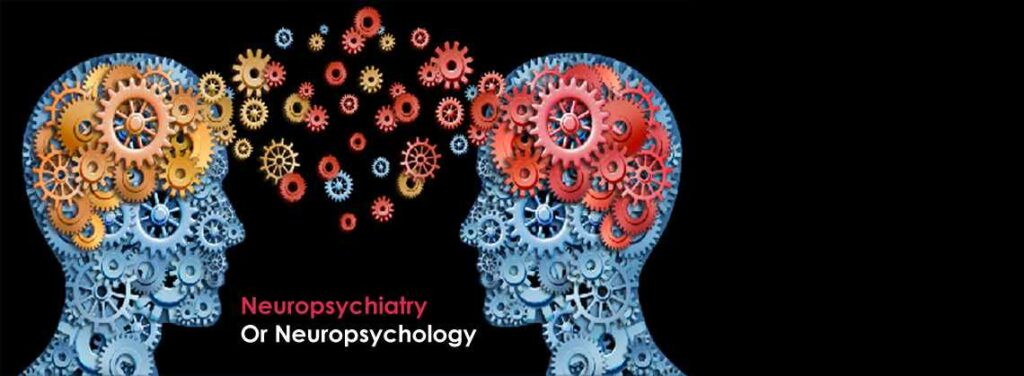Neuropsychiatry is a relatively new field that deals with the relationship between the brain and mental disorders. It combines neuroscience, which is the study of the nervous system, and psychiatry, which is the study of mental disorders. This intersection of two fields has led to many new discoveries about how the brain works and relates to mental health. In this blog post, we will discuss neuropsychiatry in more detail and answer some common questions about it.
Contents
- 1 What Is Neuro-Psychiatry?
- 2 What Are the Different Techniques of Neuro-Psychiatry?
- 3 How Does Neuro-Psychiatry Work?
- 4 What Conditions Does Neuro-Psychiatry Treat?
- 5 What Is The Difference Between Psychiatry And Neuro-Psychiatry?
- 6 What Are The Benefits Of Neuro-Psychiatry?
- 7 What Are The Risks Of Neuro-Psychiatry?
- 8 Conclusion
What Is Neuro-Psychiatry?
 Neuropsychiatry is a branch of medicine that deals with the diagnosis and treatment of mental disorders. It is a relatively new field that combines elements of psychiatry and neurology. Neuropsychiatrists use brain imaging techniques, such as MRI, to examine the structure and function of the brain in order to better understand and treat mental disorders.
Neuropsychiatry is a branch of medicine that deals with the diagnosis and treatment of mental disorders. It is a relatively new field that combines elements of psychiatry and neurology. Neuropsychiatrists use brain imaging techniques, such as MRI, to examine the structure and function of the brain in order to better understand and treat mental disorders.
Neuro psychiatrist uses their knowledge of how the nervous system and the brain work to help treat patients with psychiatric disorders.
Neuropsychiatrists often work closely with other healthcare professionals, such as psychologists and counselors, to provide comprehensive care for patients. In some cases, neuropsychiatrists may also prescribe medication to help patients manage their condition.
What Are the Different Techniques of Neuro-Psychiatry?

There are several different techniques of neuropsychiatry, each specializing in the treatment of different mental disorders. Some common types of neuropsychiatry include:
Cognitive Behavioral Therapy: This type of therapy helps patients identify and change negative thinking and behavior patterns. For instance, a patient with depression might learn how to recognize and change their negative thoughts about themselves.
Interpersonal Therapy: This type of therapy focuses on patients’ relationships with others. It can help patients improve their communication skills and learn how to express their feelings in a healthy way. For example, a patient with social anxiety might learn how to start and maintain conversations with others.
Psychodynamic Therapy: This therapy explores a patient’s past experiences and emotions to help them understand present thoughts and behaviors. For example, a patient with PTSD might discuss their trauma in therapy to help them process and heal from it.
EMDR Therapy: This type of therapy is used to treat patients with PTSD. It involves helping patients process and heal from their trauma by using eye movements and other forms of stimulation.
Treatment plans will vary depending on the individual’s needs but may include medication, therapy, and lifestyle changes. Medications that are commonly used to treat mental health conditions include antidepressants, anti-anxiety medications, and mood stabilizers.
Thus these are the different techniques of neuropsychiatry that are available to help patients with mental disorders. If you or someone you know is struggling with a mental disorder, please reach out to a mental health professional for help.
How Does Neuro-Psychiatry Work?
Neuropsychiatry is a branch of medicine that deals with the interface between the nervous system and mental health. It is a relatively new field, only really coming into its own in the last few decades.
There are two main ways that neuro-psychiatrists work: by looking at how neurological problems can cause psychiatric symptoms, and by looking at how psychiatric problems can cause neurological symptoms.
In the first instance, neuropsychiatrists might treat someone who has had a stroke, for example, and is now suffering from depression as a result of the damage to their brain. In the second instance, they might treat someone with schizophrenia who also has problems with movement and coordination as a result of the disease.
Neuro-psychiatrists use a variety of techniques to help their patients, including medication, therapy, and lifestyle changes. They also work closely with other members of the healthcare team, such as neurologists, psychiatrists, and psychologists.
What Conditions Does Neuro-Psychiatry Treat?
Neuropsychiatry is a branch of medicine that deals with mental disorders that have a neurological basis.
- These can include conditions such as Alzheimer’s disease, Parkinson’s disease, Huntington’s disease, multiple sclerosis, and cerebral palsy.
- In some cases, neuropsychiatrists may also treat conditions such as attention deficit hyperactivity disorder (ADHD), autism, and Tourette’s syndrome. For instance, they might use medication to treat the symptoms of Alzheimer’s disease or provide psychological support to someone with Huntington’s disease.
What Is The Difference Between Psychiatry And Neuro-Psychiatry?

- The main difference between psychiatry and neuro-psychiatry is that psychiatry focuses on the mind, while neuro-psychiatry focuses on the brain.
- Neuro-psychiatrists are able to understand how different areas of the brain work together and how they can be affected by various mental disorders. This allows them to provide more targeted treatment for their patients.
- While neuropsychiatry is a branch of medicine, psychiatry is a branch of psychology. Both disciplines deal with mental disorders, but neuropsychiatry focuses on the relationship between the brain and mental disorders while psychiatry focuses on psychological factors.
Thus these are the differences between psychiatry and neuro-psychiatry. Both psychiatry and neuro-psychiatry are vital in the field of mental health, and both can help people who are struggling with mental disorders.
What Are The Benefits Of Neuro-Psychiatry?

The goal of neuropsychiatry is to treat the whole person, not just the symptoms of their condition. This means that neuro-psychiatrists will often work with other healthcare professionals, such as psychologists, to provide a comprehensive treatment plan.
Neuropsychiatrists will also look at the person’s social and environmental factors that may be affecting their mental health. For example, they may assess whether someone is dealing with stress at work or in their personal life. They may also evaluate whether there are any medical conditions that could be contributing to the person’s mental health symptoms.
Some of the benefits of neuropsychiatry include:
Improved diagnosis and treatment
Neuropsychiatry uses brain imaging techniques to improve the diagnosis of mental disorders. This allows for more accurate and effective treatments. For example, neuropsychiatry can help to identify the specific areas of the brain that are affected by a mental disorder. This information can then be used to develop targeted treatments.
Improved quality of life
Neuropsychiatry can also improve the quality of life for people with mental disorders. For example, neuropsychiatry can help to identify early warning signs of mental disorders. This can help to prevent the development of more serious mental health problems. And improve the overall quality of life for people with mental disorders.
In addition, neuropsychiatry can also help to improve the quality of life for caregivers of people with mental disorders. For example, neuropsychiatry can provide caregivers with information about how to best support their loved ones. This can help to reduce the caregiver’s stress levels and improve the quality of their relationship with the person they are caring for.
A better understanding of the brain
Neuropsychiatry is helping to increase our understanding of how the brain works. This knowledge can be used to develop new and better treatments for mental disorders. For example, neuropsychiatrists are studying how the brain’s structure and function are related to mental disorders. They are also looking at how different areas of the brain work together to affect behavior.
In addition, neuropsychiatrists are using new imaging techniques to study the brains of people with mental disorders. This research is providing new insights into the causes of mental disorders.
Improved communication
Neuro-psychiatric treatments can help improve communication between the doctor and the patient. This can help the doctor better understand the patient’s needs and provide more effective treatment.
Improved mental health
Neuro-psychiatric treatments can improve mental health by reducing symptoms, improving functioning, and increasing life satisfaction. For example, psychiatric medications can be used to treat conditions like anxiety, depression, and schizophrenia. These medications can help improve mood, sleeping habits, energy levels, and concentration. In some cases, they can also help reduce or eliminate hallucinations and delusions.
Psychotherapy is another effective treatment for mental health conditions. This type of therapy can help people learn how to cope with their symptoms, manage their emotions, and improve their relationships. Neuro-psychiatrists can also provide other types of treatment, such as brain stimulation therapies and electroconvulsive therapy.
Improved physical health
neuropsychiatry improved physical health by reducing stress and anxiety. The improved physical health also increased the quality of sleep. In addition, patients felt more energetic and had an overall sense of well-being. For instance, one study found that patients who underwent neuropsychiatry treatments had a significant decrease in their cortisol levels. Cortisol is a hormone that is released in response to stress.
In addition to the benefits for physical health, neuropsychiatry also offers psychological benefits. Patients who undergo treatment often feel less anxious and stressed. They may also feel more hopeful and optimistic about their future.
If you or a loved one is struggling with mental health issues, neuropsychiatry may be a treatment option to consider. Neuropsychiatrists are specially trained in both psychiatry and neurology, which gives them a unique perspective on mental health.
Reduced risk of suicide
Neuro-psychiatric treatments can reduce the risk of suicide by reducing symptoms, improving functioning, and increasing life satisfaction. One study found that people with depression who received neuropsychiatric treatment were less likely to attempt suicide than those who did not receive treatment.
It is an important tool in improving our understanding of mental disorders and their treatments. If you or someone you know is suffering from a mental disorder, neuropsychiatry may be able to help.
What Are The Risks Of Neuro-Psychiatry?
Like all medical treatments, neuropsychiatry comes with some risks. These risks should be weighed against the potential benefits of treatment. Some of the risks associated with neuropsychiatry include:
Side effects of medication
One of the most common risks of neuropsychiatry is the side effects of medication. Medication can cause a variety of side effects, including weight gain, fatigue, and dizziness. It is important to talk to your doctor about the potential side effects of any medication you are taking.
Mental health relapse
Another risk of neuropsychiatry is the potential for mental health relapse. This means that your mental disorder may return after you stop treatment. It is important to work with your doctor to develop a plan to prevent mental health relapse.
It is important to talk to your doctor about the risks and benefits of neuropsychiatry before starting treatment. Neuropsychiatry is a relatively new field, but it has already shown great promise in helping people with mental disorders. However, like all medical treatments, neuropsychiatry comes with some risks. These risks should be weighed against the potential benefits of treatment.
Therapy can be an important part of treatment for many people, and there are a variety of different types that can be effective. Make sure to discuss all your options with a doctor.
Conclusion
It may be concluded that neuropsychiatry is a branch of medicine that deals with the diagnosis and treatment of mental disorders. It is a relatively new field and is constantly evolving. There is still much to learn about the brain and how it affects our mental health. However, neuropsychiatrists are making great strides in understanding and treating mental illness. If you or someone you know is struggling with a mental health disorder, consider seeking help from a neuropsychiatrist.
For further information and suggestions, please contact Therapy Mantra. We have a team of expert therapists and psychiatrists that can help you overcome this problem. Get in touch with us right away to learn more about our services. You may also make an online therapy session or download our free Android or iOS app.


